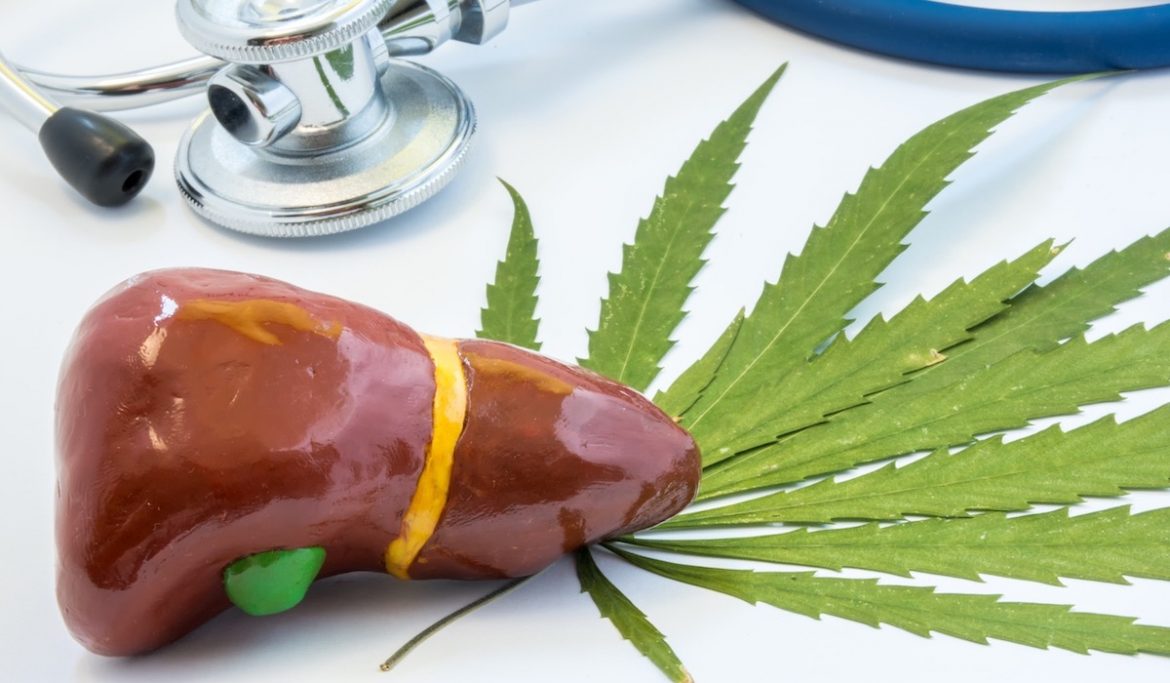This article will be exploring the Liver Effects CBD. when mixed with alcohol and how CBD could potentially help treat alcoholism.
Alcoholism refers to a condition in which individuals are incapable to manage their alcohol consumption routines. They will be not able to manage their desire to drink and once they begin consuming they will certainly discover it hard to stop. There is a limitless listing of factors for why someone begins drinking. However, as soon as their drinking practices spiral out of control, they are hugely at risk of creating alcoholism.
Alcoholism is not one of those illnesses that produce clear noticeable signs and symptoms. The condition silently makes within the private and lots of times people do not even understand that they have created an alcohol dependency. People experiencing alcoholism can act violently towards their relatives. Whilst, short-term effects of alcohol addiction consisting of, slowed reflexes and uneasiness can treat, the longer-term impacts are harmful. From simply one issue, alcoholism, you could be encountering extremely high risks of mental diseases, liver effects, heart issues, and cancer cells.
Benefits of CBD For Alcoholism
The robust anti-oxidant and anti-inflammatory properties of CBD make it a highly appealing therapeutic agent for treating alcoholism. CBD can help normalize liver function and thus, protect from liver diseases. It may help lower blood alcohol levels. CBD may improve memory, learning, and other cognitive abilities in patients with alcoholism. Finally, CBD may effectively reduce uncontrollable cravings for alcohol, which, can help minimize the instances of alcohol-relapse after treatment.
CBD May Prevent the Development of Fatty Livers
Alcohol can cause the fats taken in from our diets to accumulate in our livers. Fat accumulation in the liver can disrupt liver function and induce inflammation, which, can eventually lead to liver diseases known as hepatic steatosis. Scientists agree that alcohol induces steatosis by increasing oxidative stress in the liver. So, to treat this condition need a robust anti-oxidant agent. CBD is a strong anti-oxidant that vitamin C and vitamin E. Mouse studies have confirmed that the anti-oxidant properties of CBD can significantly reduce oxidative stress levels of the liver.
CBD can free the liver from oxidative stress. Furthermore, in alcohol-induced steatosis, alcohol is find to prevent autophagy. Autophagy can naturally use in humans to clear away damaged cells. It is need to promote the production of new cells and tissue regeneration. Autophagy maintains a well-functioning liver by canceling out any abnormal activity. But, alcohol prevents autophagy from working as normal. Several mouse studies have reiterated that CBD can increase autophagy. The lowered levels of autophagy in individuals with alcoholism may be brought back to normal using CBD. A particular mouse model showed that CBD could reverse the damage in alcohol-induced steatosis and thus, improve symptoms.
No clinical trials have been done to investigate the effectiveness of CBD for alcohol-induced steatosis.
CBD May Protect from Liver Injury
You must have wondered why people have different alcohol tolerance levels. The most obvious answer is – environment. The more a person drinks, the better the tolerance they build. Yes, this is true but, it is not the complete answer. Some people are in fact ‘genetically blessed’. Their genes code for more efficient varieties of the enzymes that are used to break down alcohol in the body. So, the alcohol is clear away faster, they do not feel as intoxicated and thus, they can keep drinking. Alcohol is broken down by enzymes in the liver. These enzymes are produce according to the instructions in our DNA.
Alcohol activates the immune system to release pro-inflammatory chemicals. This leads to increased inflammation and oxidative stress in the liver. White blood cells (e.g. Neutrophils) invade the liver and can cause alcohol-induced liver injury. In the early 1980s, cell culture studies had already found CBD to inhibit the production of pro-inflammatory molecules. Scientists concluded that CBD was a robust immunosuppressive. It can protect from liver injury by suppressing pro-inflammatory responses and tuning down oxidative stress. CBD exerts its anti-inflammatory effects by binding to the receptors of the endocannabinoid signaling system in humans. This system is essential to regulate homeostasis in humans, i.e. housekeeping of the body.
Endocannabinoid receptors are found on immune system cells. So, the effects of CBD can feel by the immune system cells and they can order to produce fewer pro-inflammatory responses. In mouse models for alcohol-induced liver injury, CBD neutralized oxidative species and suppressed pro-inflammatory responses. Also, CBD prevented neutrophils from entering the liver. Collectively, this brought down the levels of alcohol-induced liver injury. There is a lack of clinical trials in this area. They will need for CBD to become an approved form of treatment for alcohol-induced liver injury.
CBD May Reduce Blood Alcohol Levels
Bad or good, marijuana has always been a key area of research for scientists. First, they isolated the psycho-stimulating chemical of marijuana, THC, and later, CBD. Little did they know at the time that CBD would go on to become one of the most desirable phytochemicals in the pharmaceutical industry. Just recently in 2018, Epidiolex became the first CBD oral supplement for the treatment of 2 types of epilepsies. A 2019 review summarized the clinical evidence we currently have to back CBD as a novel therapeutic agent for alcoholism. Only 3 human trials have been done to investigate the safety and efficiency of CBD in helping to manage the symptoms of alcoholism.
Of the 3, the most famous study is the one that found CBD to reduce blood alcohol levels when CBD and alcoholic beverages were consumed together. The trial leaders found that consuming just alcohol or alcohol + CBD led to impaired motor activity in the participants. However, participants taking alcohol + CBD had lower blood alcohol levels than those taking just alcohol.
The mechanism by which CBD may lower blood alcohol levels is still unclear. But, most scientists agree that CBD would somehow be influencing the absorption of alcohol into the blood from the stomach and intestines. Additionally, as the CBD is known to disrupt the liver metabolization of drugs, it is highly likely that CBD would be doing the same with alcohol too is broken down by the liver.
CBD Can Help Protect from Brain Damage
The harmful effects of alcohol on the brain can be felt in patients battling with alcoholism. Alcohol kills brain cells. This leads to behavioral and cognitive impairment. The morning after a night out you may find it difficult to recall what all happened during the night. This is because the high levels of alcohol in your body at the time prevented memory formation.
The areas of your brain more susceptible to alcohol are those that are responsible for: problem-solving, attention, learning, memory, and behavior control. There are clear visual signs in the brains of people with alcoholism of long-term permanent deficits. The anti-oxidant activity provided by CBD can help fight the toxicity caused by alcohol and thus, protect brain cells from being damaged. Generally, mouse studies for alcoholism use oral CBD supplements. A group of scientists decided to do something different and used CBD gels instead. They found that there was a dose-dependent improvement in brain damage of alcoholic mouse models. Higher doses led to a reduction in neurodegeneration by up to 50% in certain brain parts.
Gels have an important advantage over oral supplements; patients are more likely to use gels i.e. there will be greater patient compliance. Alzheimer’s disease is also symbolic of extensive brain damage. Instead of alcohol, there is a particular protein inflicting toxicity upon brain cells and causing them to die. Cell culture studies showed that CBD can protect brain cells from damage by that protein. CBD may be able to protect brain cells from various toxic agents, including alcohol. However, to substantiate these claims, clinical trials will be needed.
CBD May Help with Alcohol Addictions
CBD has not yet been directly tested on addictions related to alcohol in humans. But, clinical trials have shown that CBD can curb addictive behaviors related to a variety of drugs including opioids and marijuana. Scientists agree that CBD’s beneficial effects in drug addictions can also apply to alcohol. In a 2013 trial, participants consuming CBD were smoking fewer cigarettes per day than those on the placebo. Cigarette cravings had reduced from day 1and CBD treatment helped lower anxiety also. Multiple studies confirmed that CBD reduced the motivation to consume alcohol and could help prevent alcohol relapse.
Alcohol relapse occurs when a person returns to drinking alcohol after a period of sustained sobriety. At present, naltrexone is regularly using to manage alcohol dependence in alcoholism. A mouse study found that using CBD alongside naltrexone produces stronger effects than using either drug alone. A Combination of drugs is generally more prefer as the individual dosage of each drug can reduce. As a result, the dose-dependent side effects of each drug can minimize. By reducing side effects, the overall efficiency of a drug climbs up.
Is it Legal to Sell Mixed Alcoholic Beverages With CBD?
The CBD industry is fast-evolving as new scientific findings are coming to light. This is leading to confusion about the legal status of CBD products. You’d think that if bars and clubs are now openly selling CBD-infused beverages it would be legal to do so. However, this is not necessarily true. Selling CBD is legal. But, CBD is not an approved ingredient of alcoholic beverages. So, to sell CBD-infused alcohol, a business/individual must have the correct approvals. They may seek patents for their particular concoction as well, as Bohus Bradley did.
On the other hand, Black Hammer Brewing in California was stopped from selling CBD infuesd beers by the Alcohol and Tobacco Tax Bureau in early 2018 because they did not have sufficient approvals. The CBD industry is booming and has a lot of big money involved. Businesses are keen to establish a strong position in the CBD industry before competition increases.
Dosage
Hemp plants grown in northern latitudes, i.e. in Canada are likely to contain greater CBD content. CBD is non-toxic to humans even at doses up to 50 mg/kg. [44] In other words, 1500 mg/day of CBD can well-tolerate. The heart rate, blood pressure, and body temperature will not affect. We advise you to start with low doses (5 – 10 mg/kg) and then slowly increase it if you are experiencing positive results. A clinical trial revealed that 200 mg of CBD taken with alcohol in the quantity of 1g/kg of orange juice could lower blood alcohol levels. However, it is important to note that scientists do not recommend more than 20 – 50 mg of CBD per day.
Summary
CBD has not yet been approve as an ingredient of alcoholic drinks due to the lack of clinical trials investigating the safety and efficiency of CBD in alcoholism. Nonetheless, mouse studies confirm that CBD has a high potential to help alleviate and prevent the harmful consequences of excessive drinking. CBD may disarm the toxic reactions of alcohol on the brain so that, there is less damage to memory, learning, and thinking abilities.
Additionally, mood changes in people with alcoholism can improve. Alcohol increases inflammation levels and oxidative stress in the liver. CBD’s anti-oxidant and anti-inflammatory properties can counteract the effects of alcohol. CBD can protect individuals from fatty livers and the diseases associated with it. Consuming CBD alongside alcohol may help lower how much alcohol enters the blood. CBD can help reduce uncontrollable cravings for alcohol by weakening the motivation to drink. This may help treat alcohol dependencies and addiction disorders.
CBD’s time in the beverage industry has just begun. Future clinical trials will be able to confirm the efficiency of CBD for alcoholism and open up a novel treatment option for the condition.
Click here for more info – My CBD Tips



